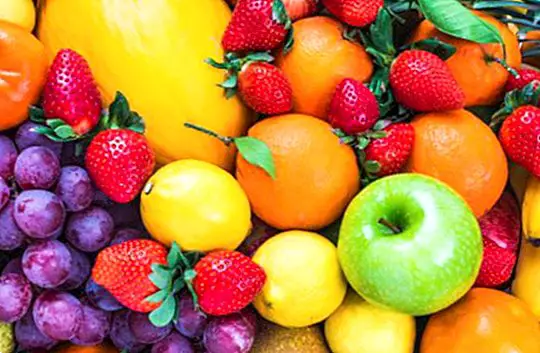Pollen: benefits and properties
 There is no doubt that bees provide us with a whole set of 100% natural products that provide us with a great diversity of nutritional benefits, ideal within a balanced diet and a healthy and healthy diet.
There is no doubt that bees provide us with a whole set of 100% natural products that provide us with a great diversity of nutritional benefits, ideal within a balanced diet and a healthy and healthy diet.
This is what happens with the by-products made by bees, which provide us with a great diversity of nutrients and virtues that are very interesting for our health: you can learn more about the benefits of royal jelly, the benefits of propolis or the benefits of honey, among others.
However, as far as the own pollen in itself, they are characterized by being small granules that are composed mainly of a mixture of flower pollen and secretions from the bees themselves.
The color of pollen grains is usually varied, so we can find it with different shades of brown, orange or yellow.
That yes, its flavor is quite pleasant, sweet but sometimes rough. But if we want to make sure we can enjoy all the pollen properties, it is best to consume it in its liquid state, avoiding taking it when it is crispy, since it will probably have lost much of its nutritional value.
Benefits of pollen
Pollen is usually taken as a nutritional supplement, well taken with water, fruit juice, or even sprinkled on a plate.
As with royal jelly or propolis, pollen is ideal to drink at the beginning of the day, as it provides energy and at the same time revitalizes.
In addition, it is useful for people who feel weak or need extra energy (for example, during exam periods), since in addition to provide energy he is able to improve the ability to concentrate. Therefore, it is also recommended for people with depression, fatigue, anxiety or stress.
Now that the typical spring allergiesDid you know that curiously Pollen is useful in the treatment of certain allergies, such as asthma?
Nutritional values of pollen
We can not finish this note on the pollen properties without telling you about the different nutritional values that you can find in this beneficial food product.
Pollen is rich in vitamins (among which you will find A, B, C, D, E and K), and in minerals (phosphorus, magnesium, calcium and potassium, among others).
In addition, it has a great nutritional value, since together with the vitamins and minerals it provides, concentrates the vast majority of the essential amino acids that our body needs.
Image | blumenbiene This article is published for informational purposes only. You can not and should not replace the consultation with a Nutritionist. We advise you to consult your trusted Nutritionist.


